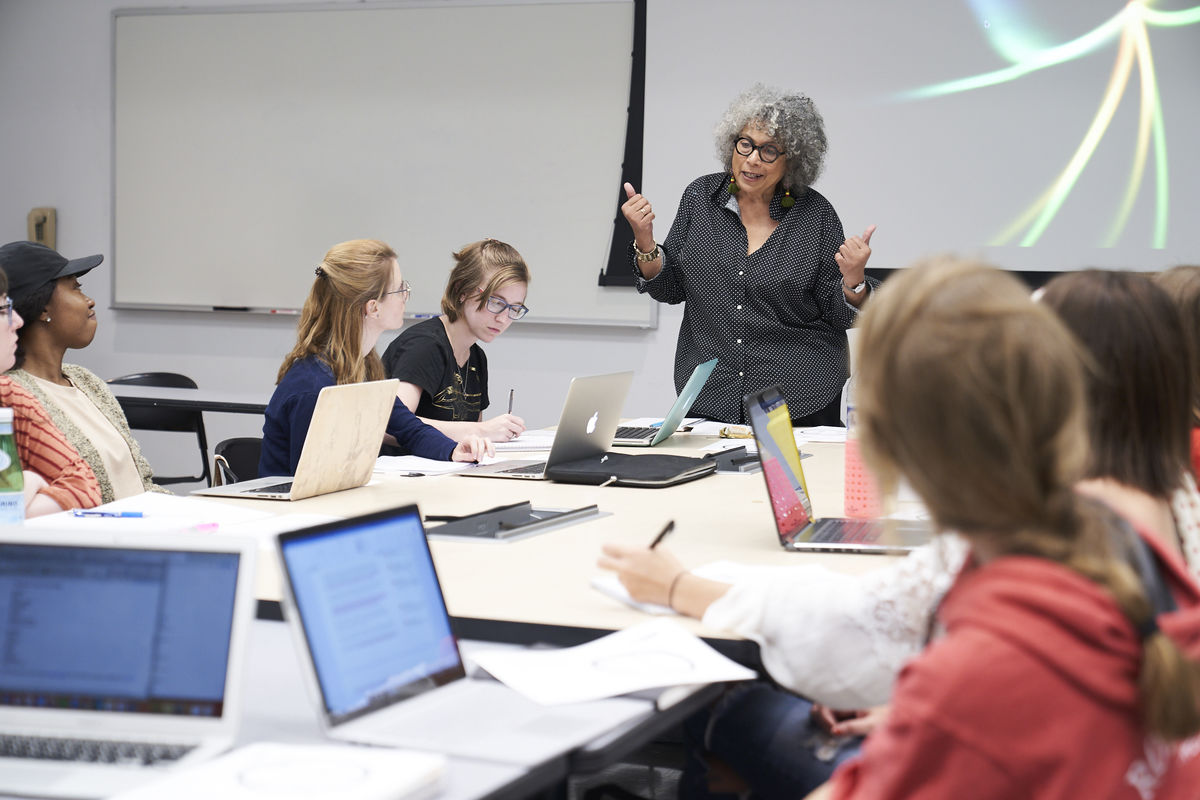The Tyler School of Art and Architecture’s new arts management track prepares students to become innovators and leaders across a range of arts roles within the commercial and non-profit sectors.

Linda Earle, professor of practice and graduate director of the MA in Art History/Arts Management Track, leads a classroom discussion in 2019. Photo by Stephanie Price.
The Tyler School of Art and Architecture—building on its reputation as a premier school for the study of art and art history—now offers a unique arts management track within its MA in Art History degree program, which engages timely and fresh perspectives framed by Tyler’s values of equity, inclusivity, access, public engagement and exploration.
Art and society form a juncture at which the frictions, aspirations, contradictions, pain and passions attached to democracy converge. Now, more than ever before, there is a need—and call—for leaders equipped with a deep understanding of the evolving civic role of cultural institutions, as well as the aesthetic and ethical dimensions of connecting art and audiences.
Tyler’s arts management track has been designed to address this need and call by supporting the development of skills and imagination that comprise modern leadership. Rather than provide job training that silos, Tyler empowers students to navigate the diverse and evolving landscape, allowing them to adapt to a wide range of career paths.
“The economic and political dynamics shaping the current cultural moment are challenging the field to reexamine its history, practices, foundational assumptions and the ways in which organizational leadership is expressed,” said Linda Earle, professor of practice and graduate director of the MA in Art History/Arts Management Track.
“COVID-related economic and programmatic disruption and calls for justice are also shaping discourse on institutional ethics, cultural equity, access and public service,” Earle continued. “These ideas frame our core classes and provide context and connection to the development of skills and problem solving within subject areas of practice and policy.”
In addition to addressing contemporary issues, Tyler’s Art History Program has expanded its offerings beyond traditional strengths to include the arts of Latin America, the Islamic world and the African diaspora. Such diverse perspectives and choices equip students with a broad knowledge of research methods and an appreciation of global cultural narratives.
Positioned within a nationally-ranked art and architecture school, the art history program also has unique opportunities to collaborate with other Tyler programs such as Architecture, Community Development and Community Arts Practices, as well as the bold thinkers, makers and boundary-pushers in its art disciplines where students and faculty are committed to social change and solving real-life problems through their creative practices. As part of Temple, Tyler students have access to the robust academic resources of a large, public research university—like the new Charles Library.
Located in Philadelphia, home to a diverse and resilient creative community and a renowned arts and culture scene with vital public art programs, Tyler utilizes the city as a living laboratory. Students apply their skills and serve in museums, community-based organizations, the commercial art world, and philanthropic positions, among others.
“We want to actively engage students in our vision of making Tyler a resource in Philadelphia for fresh thinking about ethical, inclusive practices and innovation models of cultural policy management and community building,” said Earle.
Questions? Email Tyler’s Art History Department at arthisto@temple.edu. Or, Apply now.